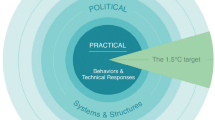Abstract
The current crisis in U.S. agriculture has broadcast a rather simplex message. It is that the traditional family farm is in serious trouble. This message is apparent in the agricultural programs that have emerged in direct response to the farm crisis. Using Michigan's experience as illustration, these programs are shown to share similar objectives supported by a singular policy orientation. They utilize a ‘farm as firm’ model and treat the small farm operation as the unit of problem analysis and remedial action. They focus attention inward upon the ‘victim’ and attempt to change the victim's behavior through improved farm and farmer management.
The paper considers the limitations inherent in this prevailing orientation. At the same time, it argues for the utility of an alternative perspective—one that places the farm in a wider context and considers the relationships between the farmer/victim and those who are more powerful—locally, nationally, and internationally. It advocates the need for research and programs that question these extra-farm relationships and their implications for farmer behavior. If agricultural programs are to assist the family farm, on any but a short-term basis, it is these relationships, and not the farmer, that must be changed.
Similar content being viewed by others
References
Bates, Michael 1986 “Name-calling Debate Hits Farms”.Lansing State Journal April 14, 1986, p. 8B.
Belsie, Laurent 1985 “Troubled Times for Midwestern Farmers”.Christian Science Monitor February 11, 12, 13, 14, and 15, 1985.
Brewster, David 1979 “The Family Farm: A Changing Concept” inStructural Issues in American Agriculture. Agricultural Economic Report No. 438, p. 74–79, Economics, Statistics and Cooperative Service, USDA. Washington, DC.
Buttel, Frederick H. 1985 “The Land-grant System: A Sociological Perspective on Value Conflicts and Ethical Issues”.Agriculture and Human Values Vol. II, #2 (Spring) p. 78–95.
Campbell, Rex R. 1985 “Some Observations in the Deflation of the Farm Assets in the Midwest”.Culture and Agriculture #27, p. 1–5.
Cochrane, W. W. 1979The Development of American Agriculture. Minneapolis: University of Minnesota Press.
deJanvry, Alain 1980 “Social Differentiation in Agriculture and the Ideology of Neopopulism” inThe Rural Sociology of the Advanced Societies: Critical Issues. Frederick H. Buttel and Howard Newby (eds), p. 155–168. Montclair NJ: Allanheld, Osmun & Co.
DeLind, Laura B. 1986 “The U.S. Farm Crisis and Media Coverage: An Example from the Midwest”.Culture and Agriculture #28, p. 11–14.
Dennison, Mike 1985 “The Grain Shippers' Role in the Farm Crisis”.In These Times March 20–26, 1985, p. 7.
Durrenberger, E. Paul 1986 “Notes on the Cultural-Historical Background to the Middlewestern Farm Crisis”.Culture and Agriculture #28, p. 15–17.
George, Susan 1984Ill Fares the Land: Essays on Food, Hunger, and Power. Institute for Policy Studies. Washington D.C.
—— 1979Feeding the Few: Corporate Control of Food. Institute for Policy Studies. Washington D.C.
Hardesty, Sermin D. (preparer) 1986 “1986 Michigan Farm Finance Survey: Final Report”. Agricultural Economics Staff Paper #86-33. Department of Agricultural Economics, Michigan State University. East Lansing, MI.
Hardesty, Sermin D. and Ralph E. Hepp (preparers) 1985 “Michigan Farm Finance Survey”. Agricultural Economics Staff Paper #85-25. Department of Agricultural Economics, Michigan State University. East Lansing, MI.
Hightower, Jim 1973Hard Tomatoes, Hard Times. Cambridge, Massachusetts: Schenkman.
Lansing State Journal 1986a “Farm Population Plummets 11.5% Between 1980 and 1985”. August 8, 1986, p. 5A.
-1986b “Farm Prices Continue to Fall; Stockpiles Up”. May 4, 1986, p. 3B.
Lappe, Francis Moore 1985 “The Family Farm: Caught in the Contradictions of American Values”.Agriculture and Human Values Vol. II, #2 (Spring), p. 36–43.
Michigan Department of Agriculture 1986a “Agricultural Assistance Network: Summary of Hotline Calls, April 9, 1985 to May 16, 1986”. May 9, 1986. Agricultural Assistance Network, MDA. Lansing, MI.
—— 1986b “News Release”. March 17, 1986. Communications Division, MDA. Lansing, MI.
-1985 Governor's Conference on the Future of Michigan Agriculture: The Workshop Report of the Agricultural Assistance Network. Fall 1985. Lansing, MI.
Morgan, Dan 1979Merchants of Grain. New York: The Viking Press.
Newsweek 1985 “Bitter Harvest”. February 18, 1985, p. 52–60.
Pugh, Terry 1986 “Grain Export Plan Aids Multinationals Only”.Guardian September 10, 1986, p. 5.
Richie, Mark 1986 “Rice: Low Price Destroys Markets, Peace”.North American Farmer September 5, 1986, p. 5.
Robbins, Wm. 1985 “Farm Experts See a Future of Fewer and Larger Tracts”.New York Times February 17, 1985, p. 15.
Vogeler, Ingolf 1981The Myth of the Family Farm: Agribusiness Dominance of U.S. Agriculture. Boulder: Westview Press.
Wood, Charles 1985 “Agriculture and the Internationalization of the United States Economy”.Agriculture and Human Values Vol II, #2 (Spring), p. 48–53.
Additional information
Laura B. DeLind is a Specialist in the Department of Anthropology, Michigan State University. Her research interests include the organization of rural U.S. communities, contemporary U.S. culture, and institutional change. Over the last two years, she has been conducting field work among Michigan farmers to better understand the nature of the social and economic relationships that support their farming operations.
Rights and permissions
About this article
Cite this article
DeLind, L.B. The U.S. farm crisis: Program responses and alternatives to them—the case of Michigan. Agric Hum Values 3, 59–65 (1986). https://doi.org/10.1007/BF01535486
Issue Date:
DOI: https://doi.org/10.1007/BF01535486




